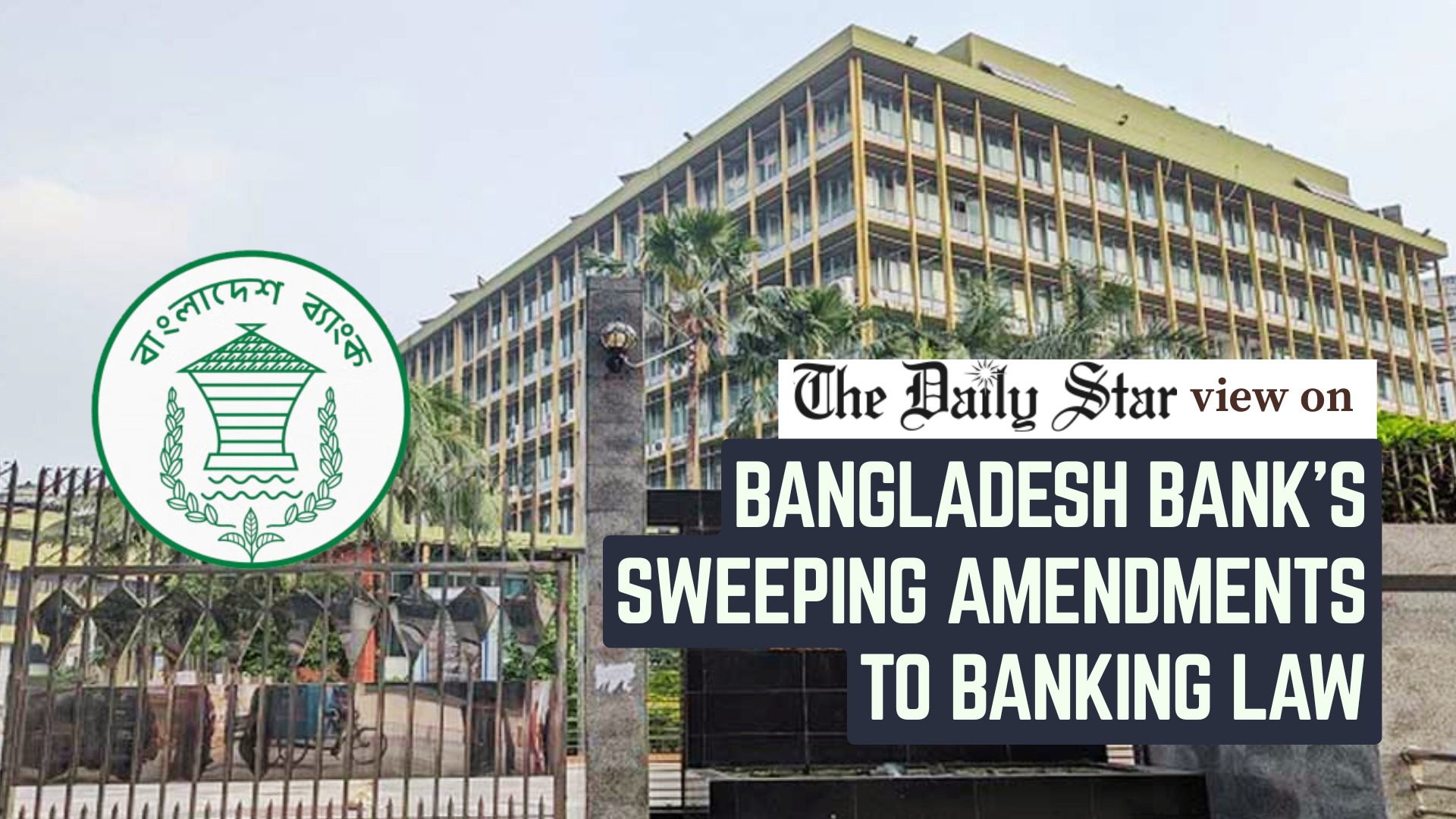The case for an Islamic digital bank in Bangladesh

According to a recent report by The Daily Star, Bangladesh Bank has received 13 new applications for digital bank licences, including one from a local conglomerate seeking to establish an Islamic digital bank. These applications followed the central bank's renewed call under its revised Guidelines to Establish Digital Bank, issued in August 2025. By contrast, the original guidelines released in June 2023 attracted 52 applications, of which only two—Nagad and Kori Digital Bank—were granted provisional approval, and the progress of both has since stalled.
A digital bank is a fully branchless, end-to-end virtual entity designed to provide inclusive financial services through entirely online platforms. This model of banking differs fundamentally from the digitalisation of traditional banks, which involves upgrading parts of existing operations with digital tools while continuing to rely on physical branches, in-person services, and legacy systems.
Although a digital bank maintains a registered head office to house management and support staff and serves as a central hub for addressing customer complaints both physically and digitally, it does not operate physical branches, sub-branches, or over-the-counter facilities. To offer efficient, competitive, and innovative financial products, its ecosystem typically integrates artificial intelligence (AI), machine learning, blockchain, and other advanced technologies. It may issue its own virtual cards, QR-based instruments, and other advanced digital tools to facilitate customer transactions, and can utilise the existing infrastructure of traditional banks, mobile financial service providers, and other licensed payment channels.
Bangladesh Bank has set the minimum paid-up capital for digital banks at Tk 300 crore under the revised guidelines, up from Tk 125 crore in the original guidelines. In comparison, traditional banks are required to maintain a minimum paid-up capital of Tk 500 crore. Additionally, the prudential regulations of Bangladesh Bank, including the Cash Reserve Ratio (CRR), Statutory Liquidity Ratio (SLR), Advance-to-Deposit Ratio (ADR), Capital-to-Risk-Weighted Assets Ratio (CRAR), Liquidity Coverage Ratio (LCR), and Net Stable Funding Ratio (NSFR), will apply to digital banks, alongside other laws and regulatory provisions relevant to the banking business.
Although Bangladesh Bank's digital banking guidelines provide a broad operational framework, they do not include provisions specifically tailored to Islamic digital banks. Nevertheless, it is reasonable to expect that an Islamic digital bank, in addition to meeting all requirements applicable to digital banks, would need to establish a robust Shariah governance framework ensuring that every aspect of its activities adheres to Islamic principles. Its distinction from traditional Islamic banks may not primarily lie in the structuring of the underlying agreements but in their execution.
Traditional Islamic banks in Bangladesh have long faced criticism for weak asset linkage, reliance on paperwork-based processes rather than real trade, limited transparency in fund utilisation and profit distribution, and governance shortcomings. These weaknesses have contributed to the recent crises in several banks. A thoughtfully designed Islamic digital bank can help reverse this trend by embedding Shariah compliance within its technological architecture.
For instance, when a client applies for a sales-based financing facility through a mobile app, the system can automatically verify the supplier's credentials, confirm the existence of the underlying asset, generate an electronic sales contract, and record both ownership transfer and delivery. This digital workflow would prevent fictitious trading and ensure full traceability of every transaction. The resulting immutable audit trail would enhance transaction authenticity, a critical need in Bangladesh's Islamic banking landscape.
An Islamic digital bank also has the potential to fundamentally reshape savings, deposits, and investments. Customers can open accounts digitally, track the utilisation of their funds in real time, and monitor profit distributions down to the transaction level. Smart-saving and micro-investment tools can be added to allow users to automate small savings and invest digitally in capital market instruments, such as sukuk and other Shariah-compliant assets. AI-driven micro or nano Mudarabah and Qard Hasan products can extend small-scale financing to microentrepreneurs based on AI scoring models, thereby reducing their dependence on collateral and manual verification.
The possibilities extend to social finance as well. Digital zakat, sadaqah, and waqf tools can allow donors to track contributions instantly. Islamic robo-advisors can guide customers on ethical wealth management. Linkage to crowdfunding platforms based on Musharakah or Mudarabah structures can connect investors with halal ventures, supported by automated Shariah screening and transparent fund flows.
Clearly, the potential is significant. However, implementing a fully automated workflow and introducing various service options may pose challenges as Bangladesh's supporting digital ecosystem is still developing. Additionally, technologies such as smart contracts, blockchain, and advanced verification systems are expensive and resource-intensive.
One of the major challenges for an Islamic digital bank will be ensuring robust Shariah governance. Traditionally, Shariah committees in Bangladesh have largely confined their role to reviewing documents submitted to them, with little to no involvement in auditing information systems. In a digital banking environment, this approach must fundamentally change. Shariah committees will need to engage directly with the underlying digital architecture. They must be able to assess digital contract structures, evaluate data integrity and governance, address issues of cyber ethics, and scrutinise the fairness of algorithms. A similar shift is needed in internal Shariah audits, which traditionally overlook information systems or examine them only superficially.
This evolution demands a new generation of professionals who combine Islamic jurisprudence with technological competence. It may be difficult to find individuals with all these competencies, but at the very least, Shariah committees and internal Shariah audit teams must collectively represent this multidisciplinary balance.
Cybersecurity is another critical area that must be recognised as a fundamental Shariah concern, as it directly upholds the Islamic core principles of trust and the protection of wealth. Strong encryption, secure cloud infrastructure, and real-time fraud monitoring should be seen not only as technical requirements but also as essential for upholding Shariah objectives.
Regulators will need to guide this transformation. Bangladesh Bank should consider developing a dedicated regulatory framework for Islamic digital banking. This framework should cover digital architecture certification, algorithmic transparency, data governance, cybersecurity standards, and the enforceability of electronic contracts. The requirements should be set from both technical and Shariah perspectives for Islamic digital banks, while ensuring that regulation facilitates innovation without compromising integrity. Capacity building for regulators, Shariah experts, fintech professionals, and system auditors is equally essential, ensuring that technological sophistication and Shariah compliance are integrated seamlessly and advance simultaneously.
It is particularly timely for Bangladesh to introduce Islamic digital banks, given recent experiences among traditional ones. However, an Islamic digital bank should represent more than a digital version of existing entities. It must articulate a clear value proposition that truly distinguishes it from others while demonstrating the ability to restore public trust in the Islamic banking sector. In a country where smartphone penetration stands at 72.8 percent yet financial inclusion lags, a well-designed Islamic digital bank could help bridge this divide. However, realising this potential will depend heavily on enhancing digital financial literacy across the population.
Mezbah Uddin Ahmed is a research fellow at the ISRA Institute of INCEIF University, Malaysia. He can be reached at mezbah-isra@inceif.edu.my.
ATM Anisur Rabbani is an executive director at Millennium Information Solution Ltd. He can be reached at anis@mislbd.com.
Views expressed in this article are the authors' own.
Follow The Daily Star Opinion on Facebook for the latest opinions, commentaries, and analyses by experts and professionals. To contribute your article or letter to The Daily Star Opinion, see our guidelines for submission.





 For all latest news, follow The Daily Star's Google News channel.
For all latest news, follow The Daily Star's Google News channel. 

Comments